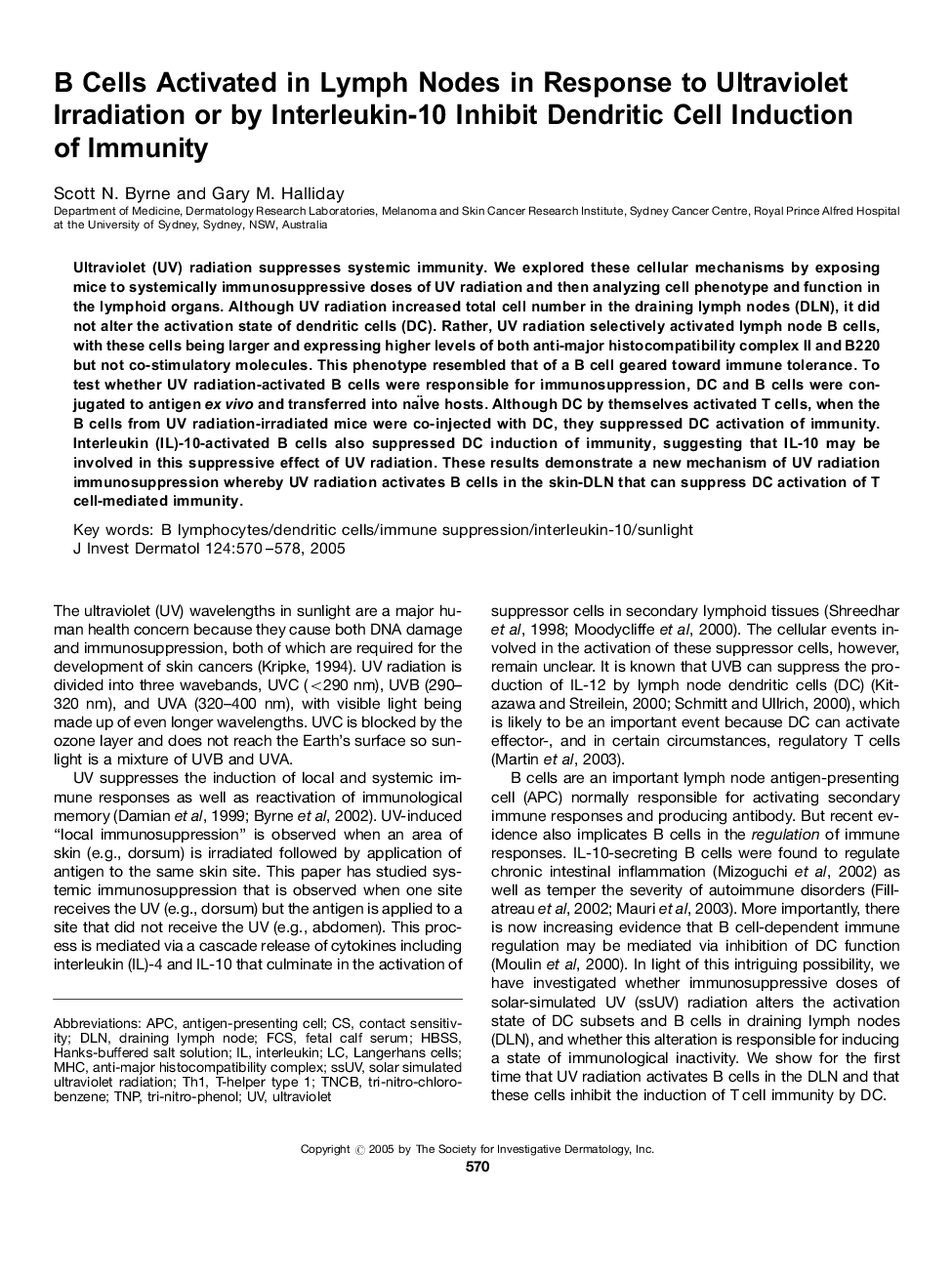| Article ID | Journal | Published Year | Pages | File Type |
|---|---|---|---|---|
| 9230313 | Journal of Investigative Dermatology | 2005 | 9 Pages |
Abstract
Ultraviolet (UV) radiation suppresses systemic immunity. We explored these cellular mechanisms by exposing mice to systemically immunosuppressive doses of UV radiation and then analyzing cell phenotype and function in the lymphoid organs. Although UV radiation increased total cell number in the draining lymph nodes (DLN), it did not alter the activation state of dendritic cells (DC). Rather, UV radiation selectively activated lymph node B cells, with these cells being larger and expressing higher levels of both anti-major histocompatibility complex II and B220 but not co-stimulatory molecules. This phenotype resembled that of a B cell geared toward immune tolerance. To test whether UV radiation-activated B cells were responsible for immunosuppression, DC and B cells were conjugated to antigen ex vivo and transferred into naïve hosts. Although DC by themselves activated T cells, when the B cells from UV radiation-irradiated mice were co-injected with DC, they suppressed DC activation of immunity. Interleukin (IL)-10-activated B cells also suppressed DC induction of immunity, suggesting that IL-10 may be involved in this suppressive effect of UV radiation. These results demonstrate a new mechanism of UV radiation immunosuppression whereby UV radiation activates B cells in the skin-DLN that can suppress DC activation of T cell-mediated immunity.
Related Topics
Health Sciences
Medicine and Dentistry
Dermatology
Authors
Scott N. Byrne, Gary M. Halliday,
